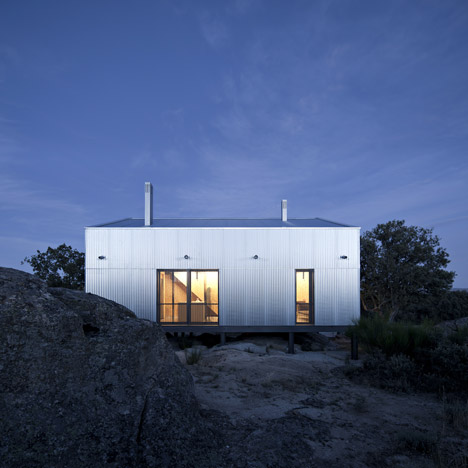
The Banquet by Herreros Arquitectos at the ROM Gallery
Recent works by Spanish studio Herreros Arquitectos are on show at the ROM Gallery in Oslo.
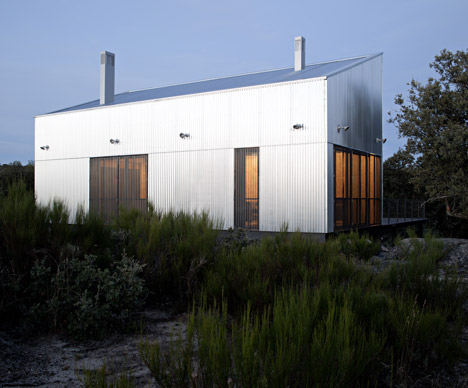
Top and above: Garoza Home, Ávila, Spain
Maquettes, videos and full-scale prototypes of architectural projects are arranged around a large dining table, where three symposiums will take place during September and October.
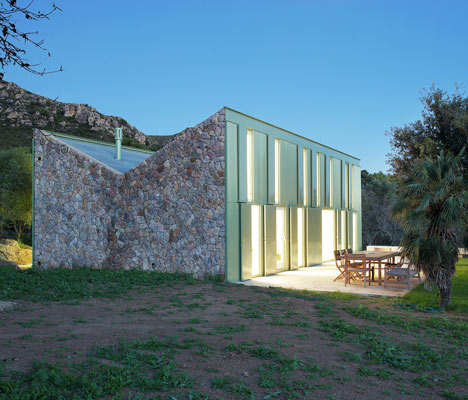
Above: Country House, Artá, Mallorca
Featured projects include the competition-winning proposals for the new Munch Museum, a gallery that will be located next to the Opera House in Oslo - see our earlier story here.
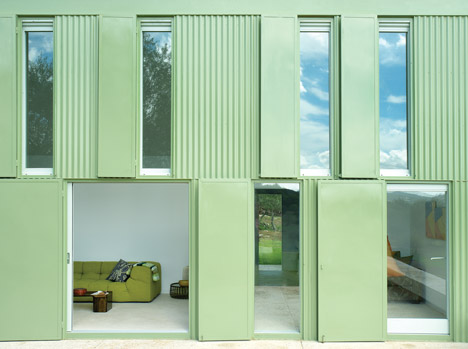
Above: Country House, Artá, Mallorca
The exhibition runs until 16 October 2011.
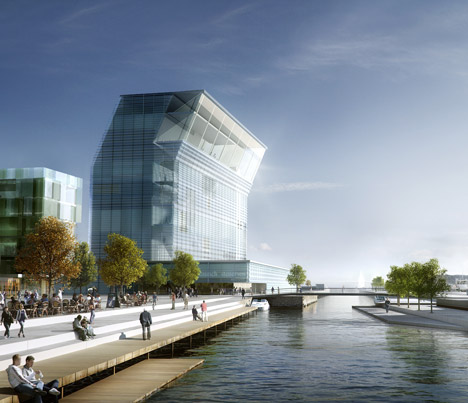
Above: Munch Museum, Oslo, Norway
Dezeen announced that Herreros Arquitectos had won the competition to design the Munch Museum back in 2009 - see our earlier story.
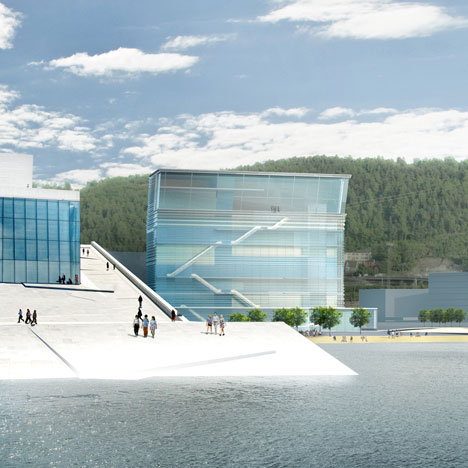
Above: Munch Museum, Oslo, Norway
Here are some more details about the exhibition:
The Spanish studio Herreros Arquitectos exhibits their latest work in Oslo
The ROM Gallery, in Oslo, will present an exhibition of work by the Spanish studio Herreros Arquitectos from August 25 to October 16 2011.
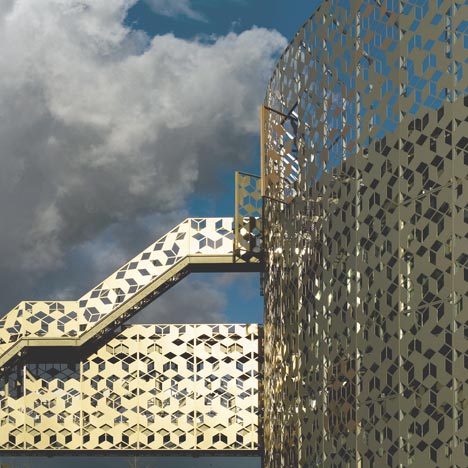
Above: Reform of the Satellite Control Centre Hispasat, Madrid, Spain
The exhibition, besides showing maquettes, videos and real-size prototypes which reflect the imaginary and the particular work method of the team led by Juan Herreros, will be accompanied by a programme of events called ‘banquets’, with contributions by international figures in the world of art and architecture such as Moritz Küng, Knut Eirick and Joseph Grima.
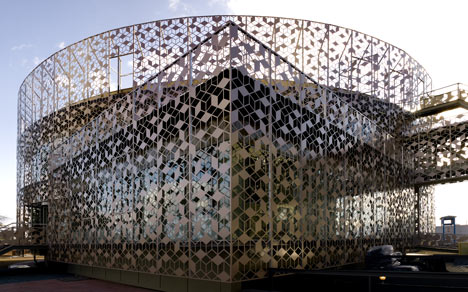
Above: Reform of the Satellite Control Centre Hispasat, Madrid, Spain
ROM, an Oslo gallery specialising in art and architecture, will present an installation featuring the latest work by Herreros Arquitectos from August 25 to October 16. The Banquet is the title of this curious installation in which maquettes, images and objects will share a space presided over by a big table with 12 chairs, a reproduction of the one designed for the restaurant at the Museo Reina Sofía, around which a series of 3 symposiums or ‘banquets’ will be held with the purpose of reflecting on the relationships between art, architecture and the city. On the basis of precepts like ‘Art & Architecture’, ‘New Museums’ and ‘Culture as Infrastructure’, guests from both Norway and abroad will engage in conversations open to the public with the aim of fostering contemporary reflection on the new role of cultural infrastructures in the development of cities and on the importance of dialogue when it comes to sharing experiences applicable to future projects.
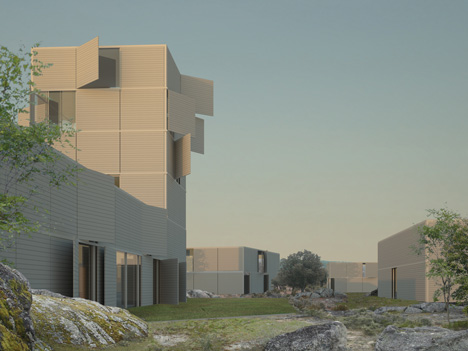
Above: Contemporary Art Centre, Ávila, Spain
In the words of Henrik der Minassian, director of the ROM Gallery, ‘It was high time that Oslo should pay homage to one of the international architects most committed to this city by virtue of his contribution to its modernisation and to its re-encounter with the sea. Juan Herreros has brought a new breath of innovation to Oslo in the form of projects which, though audacious, are nonetheless grounded on maximum intellectual proficiency. Engaging in reflections on the public content of architecture that Herreros proposes implies forming part and sharing the concerns of the international avant-garde in their quest for the meaning of the contemporary city in a world full of contradictions. Ample evidence of this is the profusion of media and forums all round the world that have echoed the project for the Munch Museum and its area.’
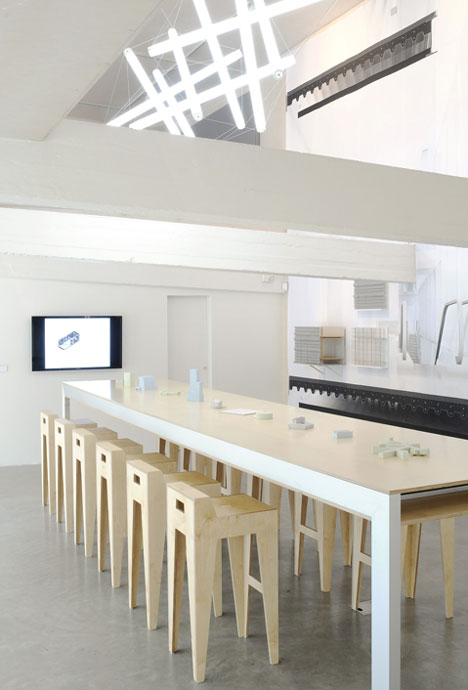
In Greek, the word BANQUET is synonymous with ‘symposium’; indeed, the philosopher Plato used the word as the heading for one of his dialogues. The sum of both meanings added to love, the subject of conversation among the philosophers who had gathered at Plato’s banquet, served as the inspiration for the configuration of this exhibition which, according to the architect, ‘brings together the materials that bear the imprint of the enthusiasm and effort needed to make ideas shine that are first intuitively perceived and subsequently developed, adapted and corrected a thousand and one times in a process of trial and error, both physical and intellectual’.
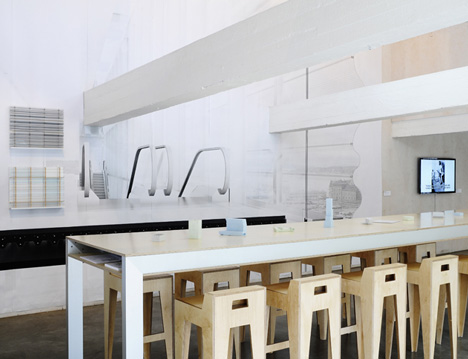
The exhibition will display fragments of real façades, such as that of the Hispasat office building; videos of industrialised architecture montages like the Garoza House or the Camera Oscura project; maquettes of experiments conducted in the sphere of rural development, such as the Fundación Ibarrola and the house in Artá; prototypes of projects under development like the series of Tensegrity lamps or the ‘Miombos Arco’; and large format images of projects such as the Torre Panamá and the ‘Urban Hut’ in Korea. However, the exhibition’s star attraction is the Munch Museum and its surrounding area. Exhibits related to this ambitious project will include a series of maquettes illustrating the laborious adjustment process, experiments with façades at different scales, 1:1 drawings, versions still being discussed of housing typologies and a film in which Juan Herreros himself explains the project, which is destined to change the city’s physiognomy and, together with the Snøhetta Opera House, is already regarded as constituting the Oslo postcard for the year 2015. On the strength of this project, Juan Herreros was awarded the 2010 ‘architect of the year’ prize by the journal AD and, by virtue of its quality and stringency, he was given the special mention in the category of urbanism at the latest edition of the Bienal de Arquitectura Española.